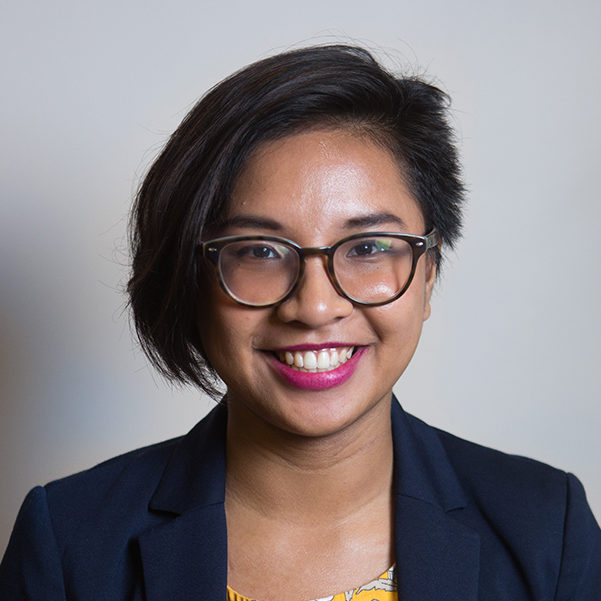
To celebrate Asian Pacific American Heritage Month, Sparks Magazine is featuring Asian Pacific Islander American (APIA) student leaders across different campuses. Look out for more features from your campus throughout May.
Samia Alamgir is a junior from the University of South Florida majoring in health sciences.
What does it mean to be APIA/your ethnicity?
Being Bengali-American has provided me with a unique perspective by connecting two distinctive cultures to form a personal hybrid philosophy. I feel Asian Americans undergo a unique transformation within which they experience a disconnect from Asian culture and eventually learn to be Asian. I struggled to create my sense of identity in a society where my family’s philosophies felt like a burden. I have found that attempting adherence to either culture is futile, and instead, it is best to honor your heritage and carry respect and love for your identity – a hybrid who is able to see both sides. Just calling myself Asian would be dismissive of all the wonderful and distinct features of Bengali culture that adopt and combine Islamic, Hindu and Western culture.
As Marcus Garvey stated, “A people without the knowledge of their past history, origin and culture is like a tree without roots.”
Was there a specific moment when you claimed your APIA identity?
I think my visit to Bangladesh in 2014 really opened my eyes to Bengali culture. I spent three months traveling the country, spending time exploring mountains, jungles, city life and the countryside. Bangladesh is so much more than the typical poverty narrative you read about. I experienced strange solidarity with people far from my profile – families who had little to no income or education. The strangest feelings I experienced were aroused while meeting family members living in poverty and making a living through farming.
 What are some of the challenges in being a student leader on campus?
What are some of the challenges in being a student leader on campus?
When I first moved to Tampa I had low self confidence, which manifested in a lack of professionalism, social skills and difficulty adjusting to college life. My mother, somewhat of a stereotype, employed tiger mom parenting, providing rules and boundaries that valued submission rather than leadership. Being a leader required me to step out of those boundaries and find my voice. Her methods, though far from perfect, gave me strong discipline and drive. Today, I use my experience as an advantage to be personable and very involved on campus. As an Asian American, I can understand other ethnic minorities and the struggles they face.
What’s your comfort food?
Although being APIA is a large sense of my identity, I am an American who loves a mean cheeseburger. My all-time favorite Desi snack, dal-puri, contains fried dough with lentil filling.
Is there a taste, smell or something you see that immediately reminds you of home or gives you a sense of comfort?
 Bangladesh, a large manufacturing presence, creates tons of industrial emissions. The scent of gasoline reminds me of the working class people who afford bills through physical exhaustion and hope for a better tomorrow. With a population of 164 million who have countless dreams. Bangladesh really is a place of both individual and communal effort. This effort is ingrained in our culture to provide for our families and obtain simple happiness. On a visual note, I own a cloth doll set that depicts these Bengali ideals. The dolls are dressed traditionally, in sari and lungi, and hold props such as fish nets and wooden brooms. In contrast to dolls hailing from European culture, which don lavish clothing, they resemble farmers and fishers, the lower class and major socioeconomic populations. The dolls provide me a sense of cultural validation in the sense that my dolls are dressed traditionally and show the value of hard work to provide.
Bangladesh, a large manufacturing presence, creates tons of industrial emissions. The scent of gasoline reminds me of the working class people who afford bills through physical exhaustion and hope for a better tomorrow. With a population of 164 million who have countless dreams. Bangladesh really is a place of both individual and communal effort. This effort is ingrained in our culture to provide for our families and obtain simple happiness. On a visual note, I own a cloth doll set that depicts these Bengali ideals. The dolls are dressed traditionally, in sari and lungi, and hold props such as fish nets and wooden brooms. In contrast to dolls hailing from European culture, which don lavish clothing, they resemble farmers and fishers, the lower class and major socioeconomic populations. The dolls provide me a sense of cultural validation in the sense that my dolls are dressed traditionally and show the value of hard work to provide.
What/who inspired you to be involved in the APIA community?
Unfortunately, despite current accessibility to technology, many cannot identify Bangladesh as a country. In the past, I often referred to myself as Indian to avoid confusion. My passion for social justice pushed me to learn and later educate [people] about Bangladesh. I wanted to learn about myself and my heritage, beyond the impoverished rhetoric textbooks provide. As Marcus Garvey stated, “A people without the knowledge of their past history, origin and culture is like a tree without roots.”
…





